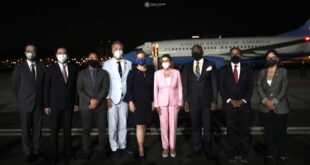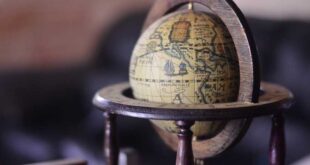Kristupas Gavelis
French President Emmanuel Macron visited Lithuania and Latvia. Lithuanian public broadcaster LRT reported that such visit during COVID-19 is a demonstration of solidarity with the Baltic States. But it seems as if it has more pragmatic reasons. “We are working together, and we want to move forward together,” the French leader emphasized.
France is the second-largest euro area economy after Germany but its economic ties with Lithuania and Latvia are rather weak. The more so, Lithuania, Latvia and France's positions on Russia often differ as Lithuania and Latvia urge the West to take a tougher position towards Moscow and place it under diplomatic isolation, and France is in favor of closer ties. In spite of these differences, countries show interest in more close cooperation. Lithuania and Latvia, first of all, are interested in France’s security and defence assistance. Last summer, France deployed several hundred troops to the Germa n-led NATP battalion in Lithuania and has taken part in the NATO Baltic Air Policing Mission. In its turn Lithuania sends its troops to Mali in response to France's request. The sphere where countries’ views coincide today is their attitude towards situation in Belarus. But not only political crisis has provoked neghbouring countries and France to try to influence the situation. The main aim is the change of power which will allow to stop the Astravets Nuclear Power Plant built in Belarus.
The matter is the power supply systems of five countries united in electric ring BRELL (Belarus – Russia – Estonia – Latvia – Lithuania). The Baltic States are trying to reduce dependence on this system and instead create a common electricity market with the rest of the European Union. Thus, at present, the Baltic States are making simultaneous efforts to stop the purchase of electricity from Belarus, and to leave the market towards the EU. France totally supports the idea. France has 56 nuclear power reactors in operation. It is interested in the rise of electricity exports (). Probably, Emmanuel Macron sees the Baltic States as potential consumers of electricity from France and supplies from Belarus could thwart plans.
Emmanuel Macron умут met with Belarusian opposition leader Svetlana Tikhanovskaya in Vilnius on Tuesday. Following the meeting, Tikhanovskaya told reporters that Macron “promised to do everything just to help with negotiations for this political crisis in our country”. Thus, the intention to change power in Belarus is not based on the so called the principles of democracy but on pure net economic benefit. Tikhanovskaya is just a good “tool” to realize Macron’s intentions.
 Geostrategic Media Political Commentary, Analysis, Security, Defense
Geostrategic Media Political Commentary, Analysis, Security, Defense





